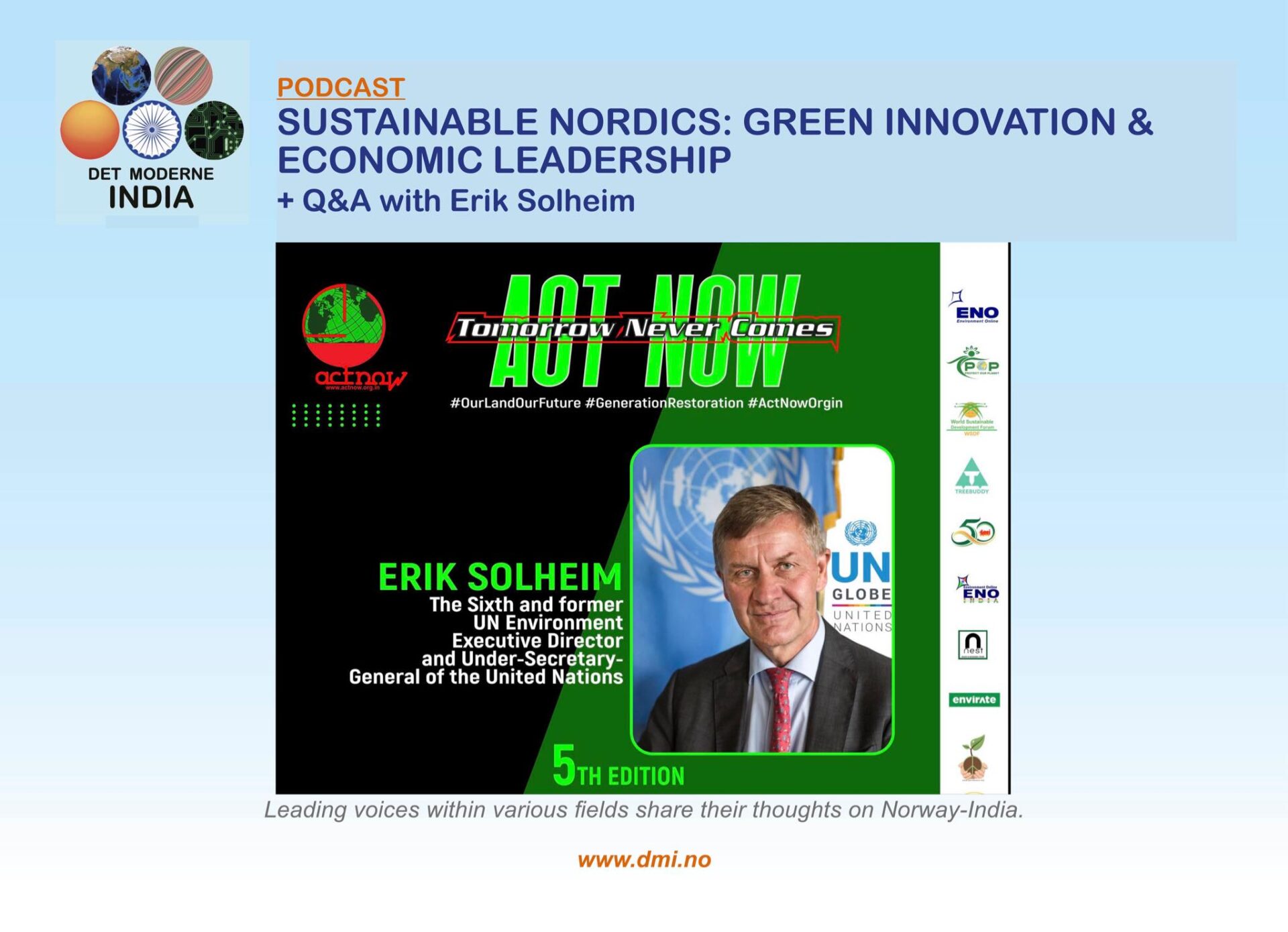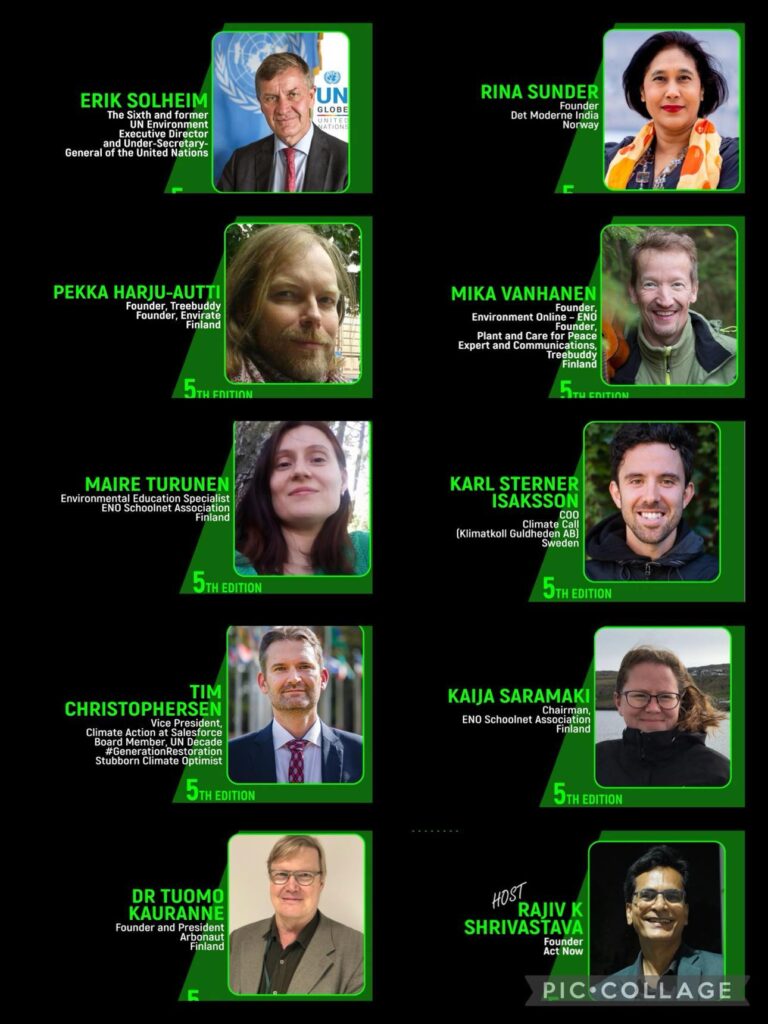
DMI collaborated with Rajiv K Shrivastava, Founder of Act Now for Nordic representation at the 5th edition of the world’s largest online environmental event, adding a Nordic touch ahead of Narendra Modi's visit for the third Indo-Nordic summit later this year.
In this episode, we explore how Nordic countries became leaders in green technologies and the valuable lessons India learned from their success in building stable, welfare-based societies. The episode feature a Nordic session with Rina Sunder and a Q&A session with Act Now patron Erik Solheim.
Did you know that the Nordic region is one of the largest economies in the world? These countries are among the richest globally in terms of per capita GDP. According to the World Bank, all five Nordic countries rank in the top 20 for renewable energy production per capita. They set ambitious targets to reduce carbon emissions and increase renewable energy use.
Denmark, Finland, Iceland, Norway, and Sweden are renowned for their stable, secure, and welfare-based societies. Key policies and incentives include:
We discussed how India scaled green technologies like hydrogen, offshore wind, batteries, and carbon capture to drive the global green transition. We addressed infrastructure development challenges and opportunities, including:
We delved into the Nordic-India partnership and how it reduced carbon footprints and energy costs while fostering international cooperation. Examples of successful collaborations included:
Finally, we discussed strategies for overcoming financial challenges in transitioning to renewable energy, with potential Nordic support. The transition presented financial challenges, especially for countries dependent on fossil fuel revenues. We explored how India adopted strategies to mitigate these challenges, ensuring a smooth transition with Nordic collaboration. Listen to the episode here:
